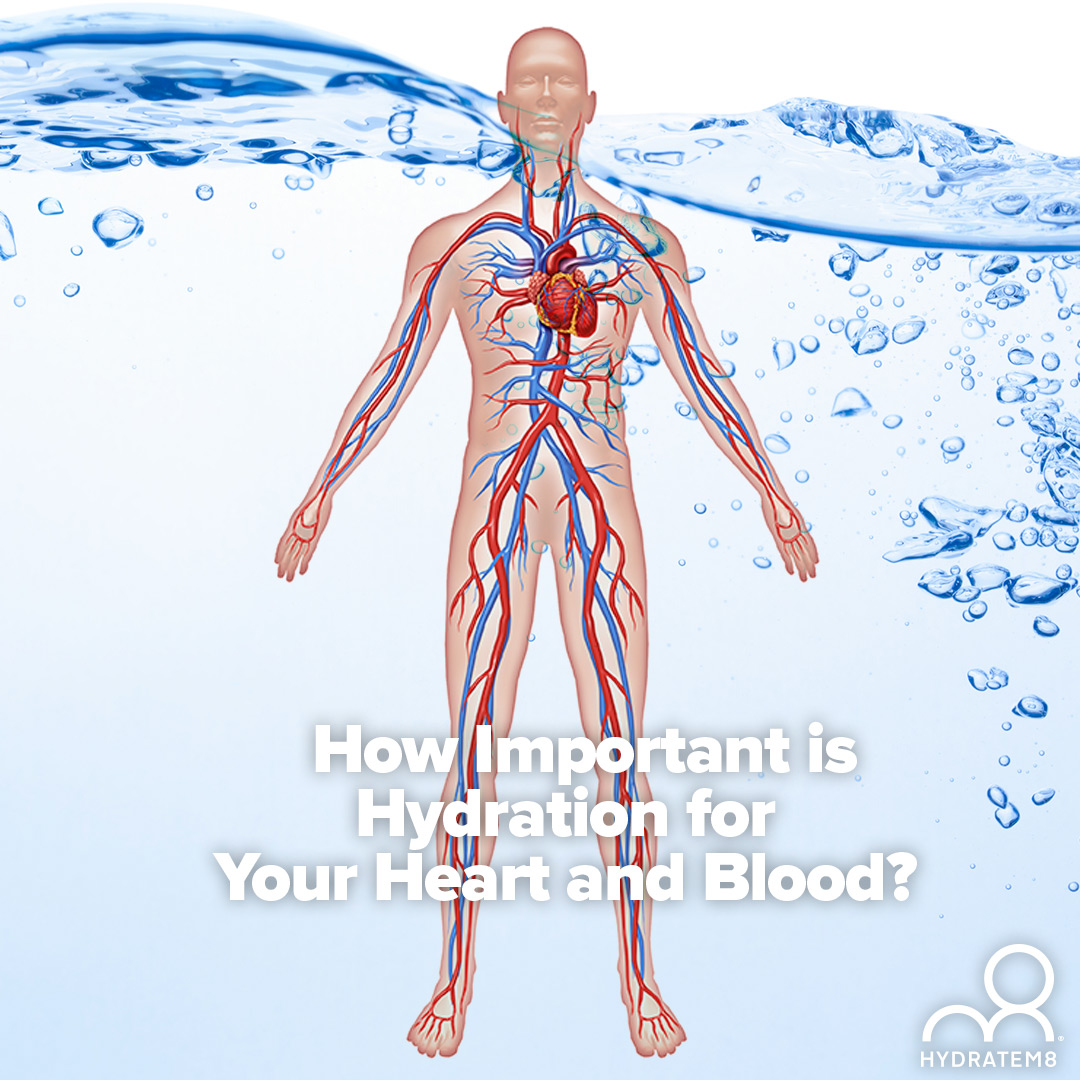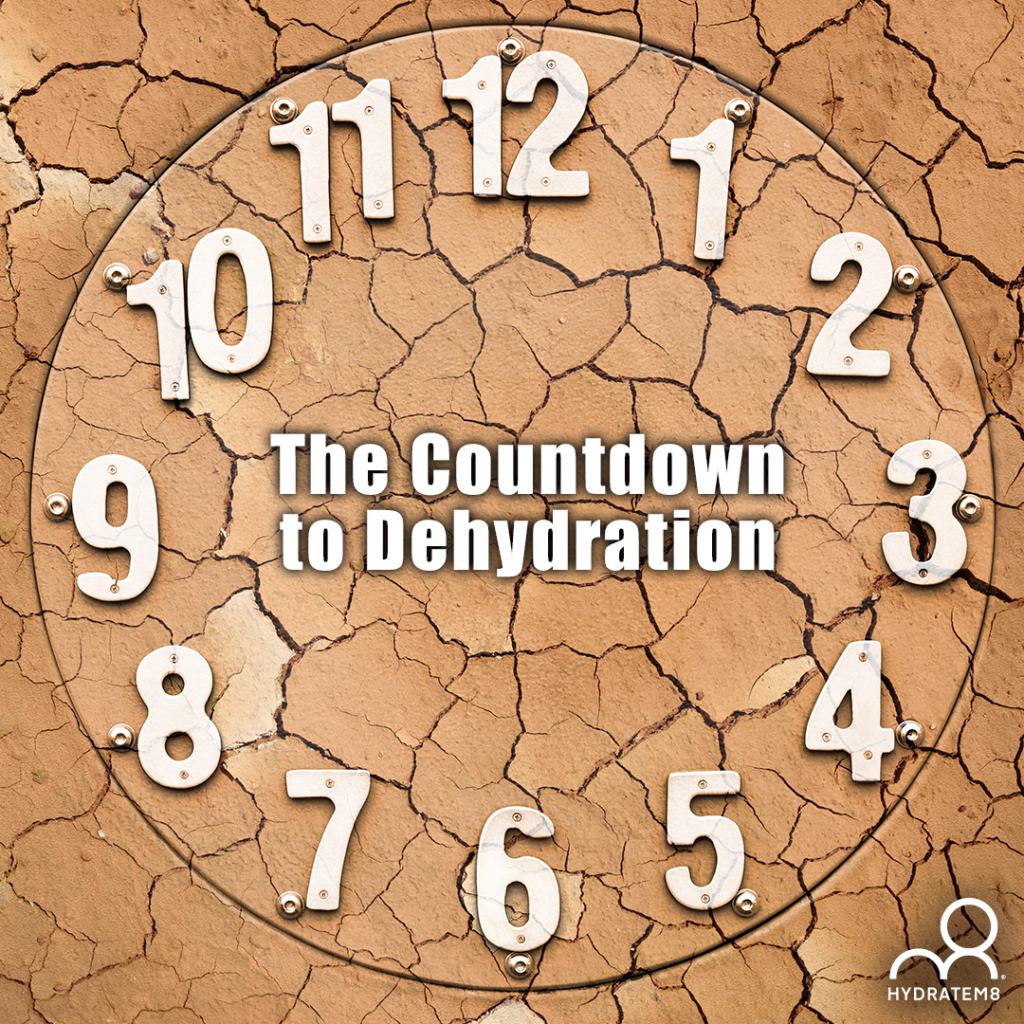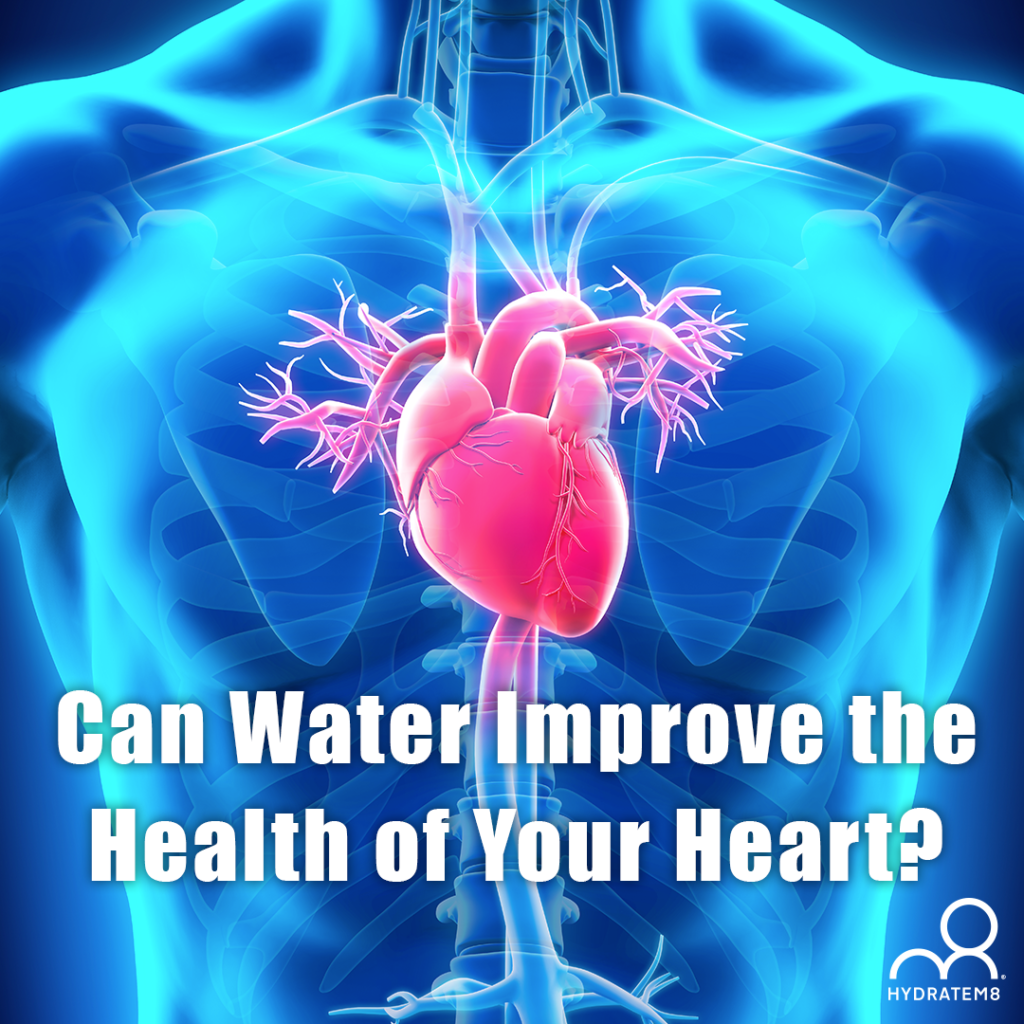It’s no secret that drinking plenty of water is hugely important to our brains and bodies, keeping ourselves running at full capacity. How important is hydration to our heart and blood, however?
The short answer to this question is very! If we allow ourselves to grow dehydrated, we run serious risk of our internal organs failing to operate appropriately.
Here are the four primary reasons that hydration is hugely important to our heart and blood.
Hydration Prevents Blood from Thickening and Clotting
Just like any non-solid substance, blood can be diluted by the addition of water. This makes it important to drink sufficient amounts of water, as it will prevent blood from congealing and solidifying within the body.
This, in turn, reduces the chance of developing a potentially fatal blood clot, which would prevent the body from functioning.
This is particularly vital if you are going to be seated or otherwise stationary or inactive for a long period of time, such as taking a long-haul flight. This scenario already leaves us at risk of developing deep vein thrombosis, so don’t take any further risks. Drink plenty of water and keep that blood from congealing.
A Hydrated Heart Pumps Blood Easier
The heart is arguably the most important organ in the human body, and it’s certainly one of the hardest working. The heart pumps blood around the body on a loop tirelessly, regardless of whether we are awake or asleep, which keeps everything else ticking over – from our organs to our muscles.
If we don’t drink enough water, however, it means that our heart has to work harder than ever. If we’re dehydrated, our heart must pump harder and harder to get that blood moving. This, in turn, leads to high blood pressure as the organ is working overtime – which can often lead to the serious risk of a heart attack.
Dehydration Can Lead to Low Blood Pressure
High blood pressure can literally be a killer. However, this doesn’t mean that we should ignore the potential for danger caused by low blood pressure.
Sooner or later, a dehydrated body will start to struggle to pump thick blood around the body and slow down the flow. This can cause all kind of problems with our blood pressure. Key symptoms of this include growing dizzy when we attempt to sit or stand up, feeling sick, or a tight chest pain – all caused by the slow, sedate pace of the blood in the body failing to reach the brain in time.
If left untreated and unchecked, the short-term impact of this will be exhaustion and an inability to think straight. Eventually, however, low pressure can cause problems with the flow of blood throughout the entire body. This can lead to heart disease and stroke, which is a pointless risk. It can all be so easily avoided by regular water breaks!
Drinking Water Reduces the Risk of a Heart Attack
In addition to the risk of high blood pressure because the heart is working overtime, or low blood pressure because the heart simply can’t get that thick and potentially congealed blood pumping fast enough, failing to drink enough water leaves the human body at risk of an excess of cholesterol.
The science is thus. As we all know, when we don’t drink enough water we become dehydrated. This, in turn, means that our body starts to panic and assumes that water is in short supply. As a survival precaution, the body then creates an excess of cholesterol in order to stop more water from escaping, almost acting as a cork within the heart. This process is called atherosclerosis.
The upshot is that arteries become blocked up by cholesterol, which makes it increasingly difficult for blood to flow back to the heart once it’s been pumped out. When this happens, the risk of a heart attack is never far away due to the simple fact that the body is not operating the way it should.
As you’ll see, your heart works hard to keep you in tip-top shape. What’s more, it doesn’t ask much in return – just the occasional top-up with a sensible amount of clear fluid. Oblige your heart in this request, and you have the key to a long, happy and healthy life!



